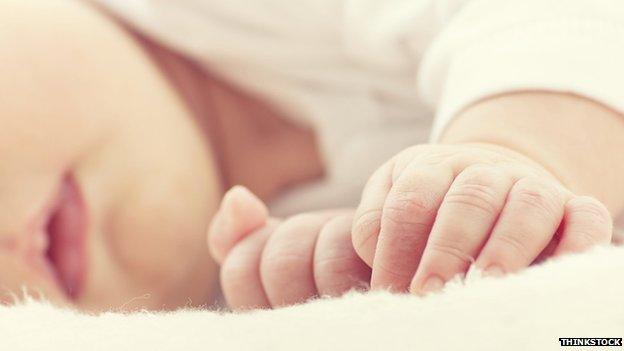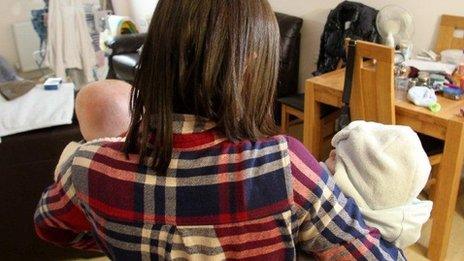Babies of addicts 'display problems'
- Published

Babies born to drug-addicted mothers have significant developmental and vision problems at six months old, a Scottish study has found.
The Early Development Journal study of 80 babies found they performed less well on tests for social interaction, co-ordination and motor skills.
The researchers say the findings are "very worrying" and such babies should be monitored closely
But child health experts said poor parenting could be to blame.
Dr Martin Ward Platt, a spokesman for the Royal College of Paediatrics and Child Health, and a consultant paediatrician at the Royal Victoria Infirmary at Newcastle said the study did not account for the impact of being raised in "non-responsive environments".
"[This finding] may be entirely mediated by a lack of child-parent interaction," he said.
Previous research had suggested babies born to mothers who use drugs while pregnant have smaller head circumference, suggestive of potential neurodevelopmental problems.
But study leader Dr Helen Mactier, a paediatrician in Glasgow, said the latest study is unique in having followed so many babies for at least six months and having in-depth information on the drugs mothers took during pregnancy.
Through interviews, urine samples and tests on the babies' first stool, they found that as well as methadone, most babies in the study had also been exposed to opiates, benzodiazepines, cannabis and in some cases stimulants.
Withdrawal
About half the babies had received morphine as newborns to help treat them for symptoms of drug withdrawal.
The babies who had been exposed to drugs had smaller heads at birth than those born to mothers who were not drug-dependant.
But by six months there was no size difference for babies compared with others who lived in the same postcode and had similar birth-weights.
But they had lower scores "across the board" in tests for balance, co-ordination, grasping and reaching for toys, making eye contact, making noises, and responding to sound.
Of particular concern, Dr Mactier said, was that 40% of the babies failed eye tests at six months because they had poor vision, squints, or "wobbly eyes" caused by a condition called nystagmus.
Babies who had to be treated for the symptoms of drug withdrawal at birth scored worse on developmental tests, but it was not clear whether the addiction, the drugs used to treat it, or the longer stay in hospital was to blame - or a combination of all those factors, the researchers said.
Babies exposed to multiple illicit drugs in the womb did worse than infants exposed to just methadone.
Substantial numbers
Figures on the numbers of babies born to drug-dependent mothers are not routinely collected.
Dr Mactier said rates had been falling but there remained a substantial number of "highly vulnerable" children who should be monitored closely throughout infancy, she added.
"We always suspected they would be disadvantaged and this evidence adds to that.
"The degree of visual problems is very concerning because this is six months on from when they have had any kind of substance in their systems," she said.
Dr Mactier said the children should be closely monitored as a matter of routine, but that was not really happening at the moment.
"If you have a child who presents at school who is socially disadvantaged and on top of that has poor vision, their learning is going to be even more compromised," she concluded.
- Published29 September 2012
